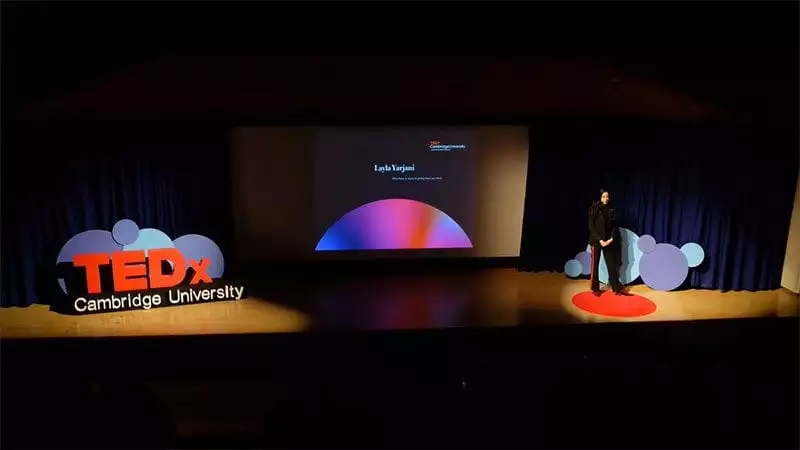Layla Yarjani presents a new model for giving
Layla Yarjani, founder of a network of young professionals supporting UNICEF, has argued for a new model for giving to charity.
Speaking in February this year at TEDxCambridgeUniversity, she argued that traditional fundraising models offered by charities are limited in their reach and appeal. Her notion of ‘building bridges’ and making giving ‘more meaningful’ offered an opportunity to engage with many more people, and in particular with young professionals.
Yarjani is the founder of NEXTGen London, the network of young professionals supporting UNICEF. She is also Director of Little Bridge, the peer-to-peer learning community for children.
At the TEDx event, she began by acknowledging that “traditional charity models that we know today are wonderful, and they work for many reasons. But they only appeal to a certain group…
“That charity model… misses all the professionals out there who want to give in a more meaningful way than just running a [sponsored] race.
“Charity model is broken for the masses”
Consequently the model can not expand much beyond its current reach.
She added: “This charity model I would argue is broken for the masses” and that it “does not work for our generation”.
She argues that it is broken because “charities aren’t asking themselves the difficult questions about how young people and professionals want to give”.
Based on her experience with NEXTGen London and in the European groups it has inspired, she believes that “our generation wants to give in a very different way”.

Layla Yarjani at TEDx Cambridge University
A new model of giving
Yarjani presented five elements of this new approach to giving, presented as a call to action from other similar young professionals.
1. We want to give as part of a community of like-minded people.
2. We want professional and personally to develop ourselves as we give within this community.
3. We want our giving to be flexible. We would like to give money in the way that we would like to give. We don’t want to be stopped outside the Tube, we don’t want to be called: we want to engage with you the way that works for us.
4. We want to do it in a meaningful way. I don’t just want to tap in and tap out of the things that I’m engaged in. I want to be engaged in the dialogue. I want to be an ambassador for your cause. I want to feel like I’m part of a story.
5. We want to have varied and dynamic experiences as we give.
She explains how she set up NEXTGen, her way of exemplifying this “new model” of giving, but without quitting her day job.
Over three years she has built a community of people in three countries who were going to help her fundraise, advocate, educate and donate her services. The community is based on common values – not on socio-economic background or a shared university or country. It would rely on crowdsourced ideas to make positive change. “Anyone off the street with a great idea could come to us and say ‘I want to bring this idea to life’. We as a team could work together to bring that idea to life”.
She talked about the importance of making bridges. Each person’s ‘bridge’ would look different but the approach works because they ensure that these ideas become each individual’s projects, initiative, friends, and charity. “And guess what: you don’t have to quit your day job”.
“You get to make charity cool, the way your friends define charity as cool”.
Advertisement
£1m for UNICEF’s Children of Syria
NEXTGen has mobilised thousands of people, started 50 initiatives and raised nearly £1 million for UNICEF’s Children of Syria appeal.
She sees this model as successful because it is flexible enough to full lots of different people’s needs in their own way. “We have created a model that enables charity to be yours, and enables you to engage with the causes that you care about in the way that you care about them”.
She believes that the charities “will welcome our bridges. We just need to give our word, stand by our word, and make sure we are engaging our peers and our hearts in these endeavours and projects”.




